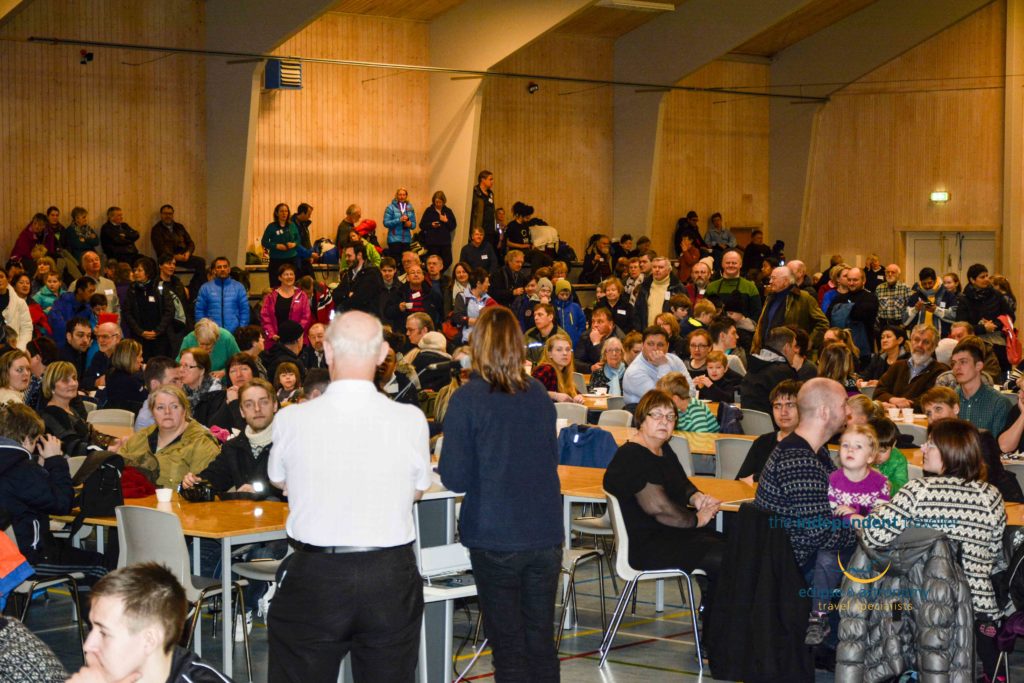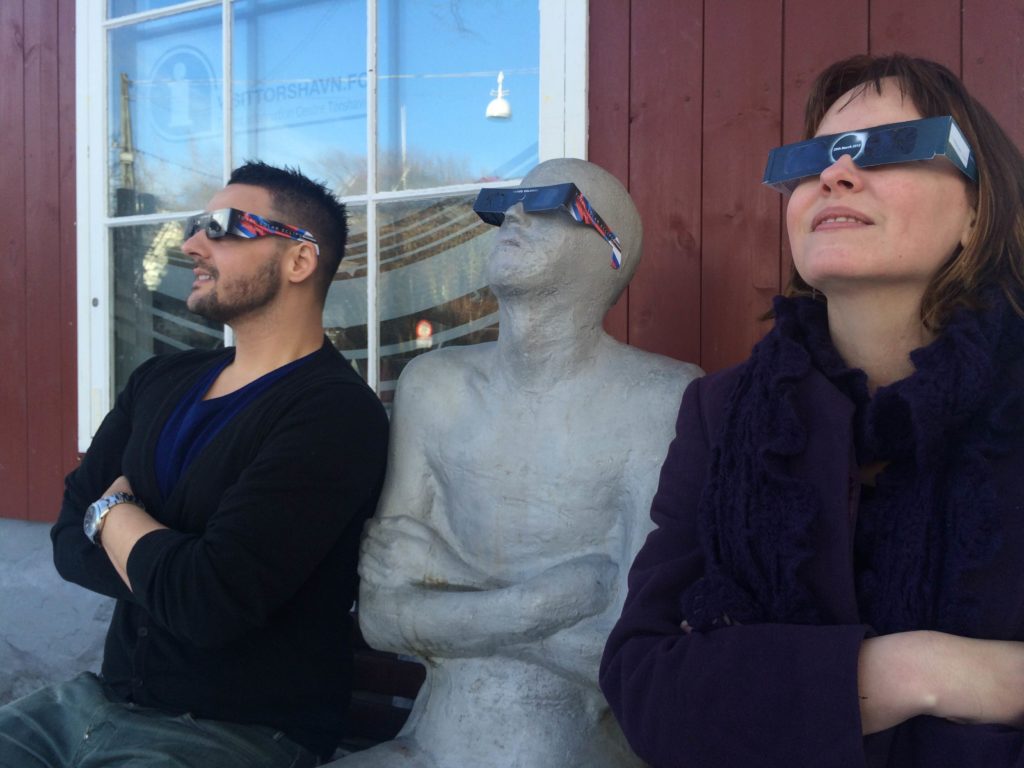Why I help communities prepare for the total solar eclipse

When a total eclipse occurs in your community, residents and visitors alike will remember it for a lifetime. Having been involved in community eclipse planning for several years now, both within my own community in Australia in 2012, and then as the Eclipse Consultant in the Faroe Islands for 2015, I know from personal experience that it is a challenging, exciting and hugely rewarding role.
A total solar eclipse usually occurs in regions that have no living memory of such an event. Even those who are put in charge of planning for it have never experienced the phenomenon. The community, therefore, will not know what an eclipse is, what it means for them and what they should do to prepare. Having chased eclipses around the world for 18 years, I have seen many regions who have been ill-prepared, or that have failed to take advantage of this unique opportunity to benefit their region. So many times I have heard the comment “we had no idea it was going to be so big!”
From eclipse chaser to eclipse planner
The turning point for me was the total eclipse of 2012, when the path of totality occurred in my home region of North Queensland, Australia. For the first time, I was a local within the community in the lead up to the eclipse. This gave me unique insights into the local perspective – and highlighted that key eclipse messages were not getting through. I spoke to many people who did not see that the eclipse was relevant to them, with some stating they were planning to leave the region to ‘avoid the chaos’.
I then went to work doing as much outreach as I could to ensure that my fellow locals knew the eclipse wasn’t just for tourists or scientists – but rather a special event for the whole community. And boy was it special! There is nothing like seeing a total eclipse in your home community.
I was already interviewing locals before and after the eclipse for my own eclipse research. I included eclipse planners in these interviews to capture the planning process. I learned some important things about eclipse planning – what worked, what didn’t, what was overlooked, and what would be done differently. Hindsight can be a wonderful thing.
Applying lessons from research and practice
I then put these hindsight lessons into practice, and started visiting and engaging with the key organisations in the Faroe Islands in preparation for the March 2015 total eclipse. I felt very privileged to be a part of that wonderful, small, and friendly community as their Eclipse Planning Consultant. I visited several times – two years before the eclipse, and again the year before, and finally relocating there in the weeks before the eclipse. My role was to help with the final stages of planning, prepare materials, and to engage with stakeholders and the community through events and the local media. I also helped coordinate what was to become the media frenzy that occurs in the days before every eclipse. The wonderful Faroese were ready and waiting for the eclipse and embraced it – and me – with open arms. The eclipse was wonderful – even though it was cloudy. I will always feel a part of the community there, and still feel so privileged that I could help.

Lessons from the past and guidance for the future
Following the eclipse, I again interviewed those involved in planning to gain further insights into the planning process. I then spent months analyzing the planning process based upon these many interviews from 2012, and 2015. I extracted the key aspects, and identified some important strategies. And having had experience of this within my psychology career, I published these important processes as a White Paper.
This White Paper on Community Eclipse Planning is the result of what I have learned through all of these activities over the years. I have shared this freely with those who are lucky enough to be living within a future path of totality. I am also delighted that most of the communities across the U.S. have been using my White Paper as a starting point to help their community prepare for this wonderful event. It is the only guidance there is on how to prepare a community for a total solar eclipse. To help get eclipse coordinators started, I have been doing free consultations to help translate general principals to each unique community. I will also be visiting communities during my four month path of totality tour, and engaging in speaking, consulting and media activities.
Leveraging the opportunity – tourism and economic benefits
There is no doubt that huge economic benefits occur for communities within the path of totality. For the 2012 total eclipse in Far North Queensland, the economic impact of the eclipse was calculated to be US$97 million. For 2015 in the Faroe Islands, 62 international media representatives catapulted the Faroe Islands into the spotlight, generating an estimated US$22 million in PR value alone. It is easy to underestimate how big the total eclipse of 2017 will be – especially as there has not been one on the U.S. mainland in 39 years. The total eclipse of 2017 will be big, you will need resources to plan, and you will wish you had started it all much earlier than you did. A little investment in planning will certainly go a long way.
Don’t be left in the dark. Be prepared for the darkness on eclipse day on August 21, 2017.
Download my White Paper on Community Eclipse Planning. If you are involved in preparing your community for the eclipse, then get in touch for your free consult.
